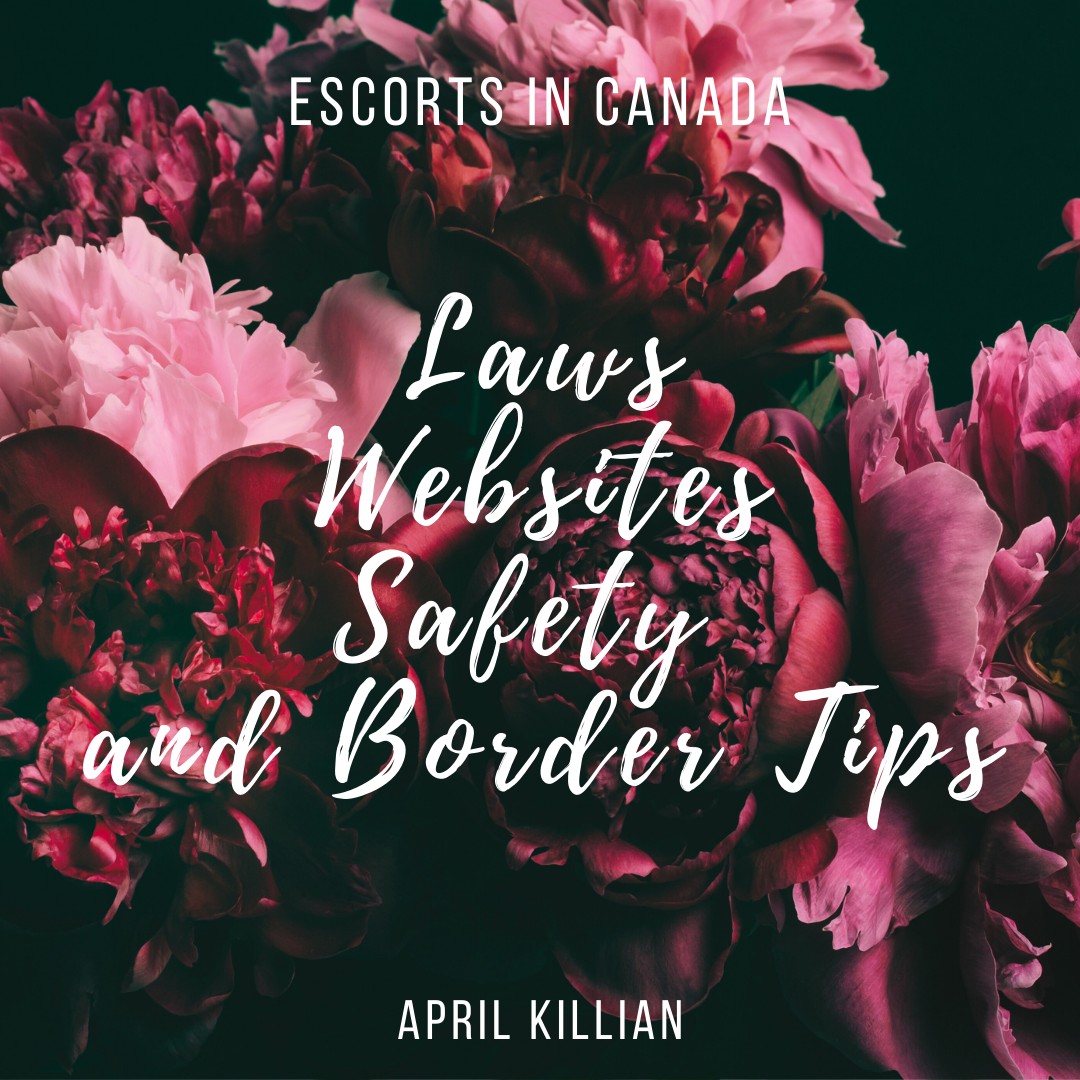Escorts in Canada: Laws, Websites, Safety & Border Tips

The Legal Reality of Escorts in Canada: Laws, Agencies, and Safety Tips
Escorting in Canada has always existed in a grey zone of legality, stigma, and misunderstanding. While individuals can sell their own services legally, the purchase of sexual services and third-party profiteering are criminalized. This creates contradictions in how the industry operates — especially when it comes to escort websites, agencies, and international travel.
In this guide, i’ll answer the top three questions about escorts in Canada, and add a crucial fourth:
-
Is it legal to sell escort services in Canada, and who is liable?
-
How do escort websites and agencies operate despite Canadian laws?
-
What are the safety and etiquette tips when booking an escort?
-
What do international clients need to know about border crossings and escorts in Canada?
1. Is it Legal to Sell Escort Services in Canada, and Who is Liable?
The short answer: Yes, an individual can legally sell their own sexual services in Canada. However, the purchase of sex, and profiting from the sex work of others, is criminalized.
The Legal Framework
-
Canada’s current laws stem from Bill C-36 (Protection of Communities and Exploited Persons Act, 2014).
-
Legal for escorts:
-
Selling one’s own services.
-
Advertising one’s own services.
-
Communicating with clients about boundaries, rates, or services.
-
-
Illegal for clients:
-
Purchasing sexual services.
-
Negotiating sexual acts for money.
-
-
Illegal for third parties:
-
Managing, profiting from, or advertising someone else’s services.
-
Running a brothel or agency in a way that exploits others.
-
👉 Key takeaway: Escorts themselves are not criminalized for selling their own services. The risk falls on clients and third-party operators.
(Disclaimer: This information is for educational purposes only and does not constitute legal advice.)
1.2 🗺️ Provincial Applications and Variations
While the federal law sets the framework, its application can vary across provinces due to local enforcement practices and municipal regulations.
Ontario
Ontario generally aligns with federal laws. However, municipalities like Toronto have bylaws that regulate street-level solicitation, often focusing on areas near schools and parks. These local regulations can impact where and how sex work is conducted in public spaces.
Quebec
Quebec has a unique approach, particularly in Montreal. The city has implemented zoning laws that restrict street-level sex work to certain areas, aiming to balance public safety with the rights of sex workers. Additionally, Quebec's human rights commission has been active in advocating for the decriminalization of sex work, influencing local policies and attitudes. Quebec — tends to take the position that what happens between consenting adults is not the government’s business, whether transactional or not. Intervention usually occurs only when there are signs of abuse, exploitation, or when someone whistle-blows to authorities. Which means that as long as you are being a gentleman, you aren't risking having the authorities at your door. Quebec has many outreach programs, health support services like : Stella, La Sortie, Projet Lune, RÉZO to name a few.
British Columbia
In cities like Vancouver, there is a history of harm-reduction policies aimed at protecting sex workers. While the province adheres to federal laws, local initiatives focus on providing support services, such as outreach programs and health services, to mitigate the risks associated with sex work.
Alberta
Alberta's approach is more conservative, with stricter enforcement of federal laws. Cities like Calgary and Edmonton have been known to conduct sting operations targeting both buyers and sellers of sexual services. However, there is also a growing movement advocating for the rights and safety of sex workers.
Other Provinces and Territories
In provinces like Saskatchewan, Manitoba, and the Atlantic provinces, enforcement of sex work laws varies. Some areas may have specific local ordinances, while others rely heavily on federal laws. The level of enforcement often correlates with local attitudes towards sex work and the presence of advocacy groups.
2. How Do Escort Websites and Agencies Operate in Canada Despite the Law?
This is where the grey zone becomes obvious.
-
Agencies: Technically, agencies that take a cut from escorts’ earnings are illegal.
-
Reality on the ground: Escort agencies and websites openly operate in most major Canadian cities. Enforcement is rare unless there are concerns about trafficking, coercion, or exploitation.
How Platforms Navigate the Law
-
Escort-owned ads: Escorts post their own listings on platforms like Tryst or Indy Companion which makes them legally safer.
-
Language matters: Ads rarely mention “sex for money.” Instead, they reference companionship, time, or entertainment.
-
Agency positioning: Many agencies brand themselves as “booking services” or “management,” avoiding explicit references to illegal acts.
📌 A Canadian sex worker on Reddit summarized it best:
“In Canada it’s legal for the sex worker but illegal for the client or anyone profiting of it. That’s why agencies are TECHNICALLY illegal … even though the law never EVER bothers them unless they suspect human trafficking.”
Cultural Reality
Agencies and massage parlors often take very large cuts of an escort’s earnings — sometimes even the majority of the booking fee. If you choose to meet with an escort working through an agency or parlor, it is considered thoughtful and respectful to tip generously. This ensures that the worker is compensated more fairly for their time, effort, and risks.
👉 Key takeaway: Escort websites and agencies operate because enforcement is selective. The law focuses on exploitation, not consensual adult work.
3. Safety and Etiquette When Booking an Escort in Canada
For new clients or curious visitors, etiquette and safety are essential. They protect both the escort and the client.
Safety & Etiquette Tips for Clients
-
Read before reaching out: Review the escort’s ad, website, or social media. Look for pages like Rates, Etiquette, and Boundaries.
-
Be respectful: Keep first contact professional. Don’t use crude language or make assumptions.
-
Use reliable platforms: Tryst is currently the most trusted platform for Canadian escorts. Indy Companion is a website of a collective of Local Montreal Escorts, Made by the community and only for the community. LeoList is still used but has more risk of scams.
-
Deposits & cancellations: Many escorts require deposits. Respect their policies—time is their livelihood.
-
Incalls vs. Outcalls: Incall means you go to their location; outcall means they visit you. Be clear about what you want.
-
Discretion: Always keep communications private and respectful.
For more How To Book an Escort for the First Time, Please visit my other blog post!
Safety Tips for Escorts
-
Screening: Ask for deposits, ID verification, or references before bookings.
-
Boundaries: Clearly outline what services are and are not offered.
-
Check-ins: Use “safe calls” or share your location with a trusted contact.
-
Trust your gut: If something feels wrong, it probably is.
👉 Key takeaway: Respect and communication are the foundation of safe, enjoyable encounters.
4. International Clients: Border Crossing and Escorts in Canada
This is a growing area of concern. While still rare, some international clients have been denied entry into Canada after border officers found evidence of sex work on their devices.
What Happens at the Border?
-
Search powers: Border officers can request to see your phone, laptop, or online history.
-
Recent reports: Travelers have been refused entry because officials suspected they were entering Canada to purchase sexual services — which is illegal.
-
Why it matters: Even if sex work itself is legal for the seller, the purchase is not. If border officials suspect you of breaking the law, they can deny you entry.
Tips for International Travelers
-
Clear devices: Do not bring explicit chats, ads, or escort references across the border. Log out of your emails, delete screenshots. Write all important information on a piece of paper in a notebook instead.
-
Have a safe “travel story”: Be prepared to state your reason for visiting (tourism, family, business). Keep it simple. Purchase tickets for a show, even if you don't go, have reservations for restaurants. If you are "coming to see a friend" make sure you have their full name and address in the case they ask. Make sure to also advise that friend you are coming in town...in case they call them.
-
Don’t overshare: Only answer what is asked by border officials.
-
Cash caution: Carrying large amounts of money can raise suspicion. Use discretion.
-
Know the risk: While refusals are not common, they are happening more often, particularly at busy airports and drive through borders.
👉 Key takeaway: International clients should be aware that Digital traces of sex work could affect entry.
Conclusion
The escort industry in Canada is shaped by contradiction:
-
Escorts themselves can legally sell their services.
-
Clients and third parties face criminalization.
-
Agencies and websites exist in a tolerated grey zone.
-
International travellers face additional risks at the border.
By understanding the laws, operational realities, safety etiquette, and border concerns, both clients and escorts can navigate this space with more clarity and respect.
Frequently Asked Questions (FAQ)
Is escorting legal in Canada?
Yes — selling your own services is legal. Buying services is not.
Can I get in trouble for hiring an escort in Canada?
Yes — in theory, clients can face criminal charges under Bill C-36.
Are escort agencies legal in Canada?
Technically no, but they often operate openly unless exploitation is suspected.
Can border agents deny me entry if they find escort-related content on my phone?
Yes — they have wide permissions of search, and there are cases where this has happened.
What’s the safest website to book an escort in Canada?
Tryst is widely regarded as the most reliable. Indy Companion for Montreal.
About the Author
Who is April Killian?
I’m an escort and dominatrix with over 10 years of experience in the industry. Beyond working directly with clients, I’ve also collaborated as a consultant on sex work laws in Canada and Quebec, helping to protect and amplify the voices of sex workers.
My approach is rooted in respect, safety, and empowerment — whether through advocacy, writing, or time spent with clients.





